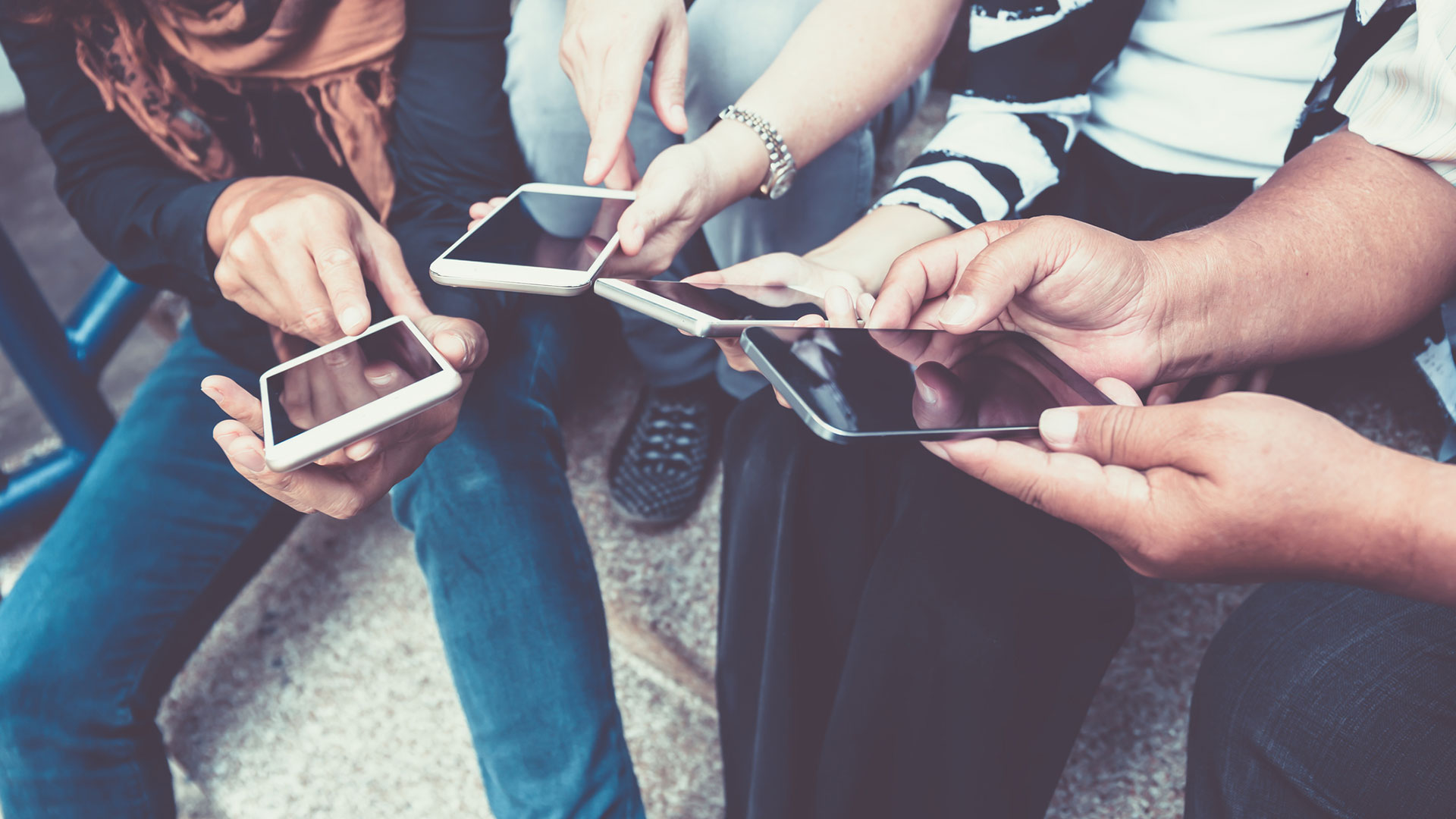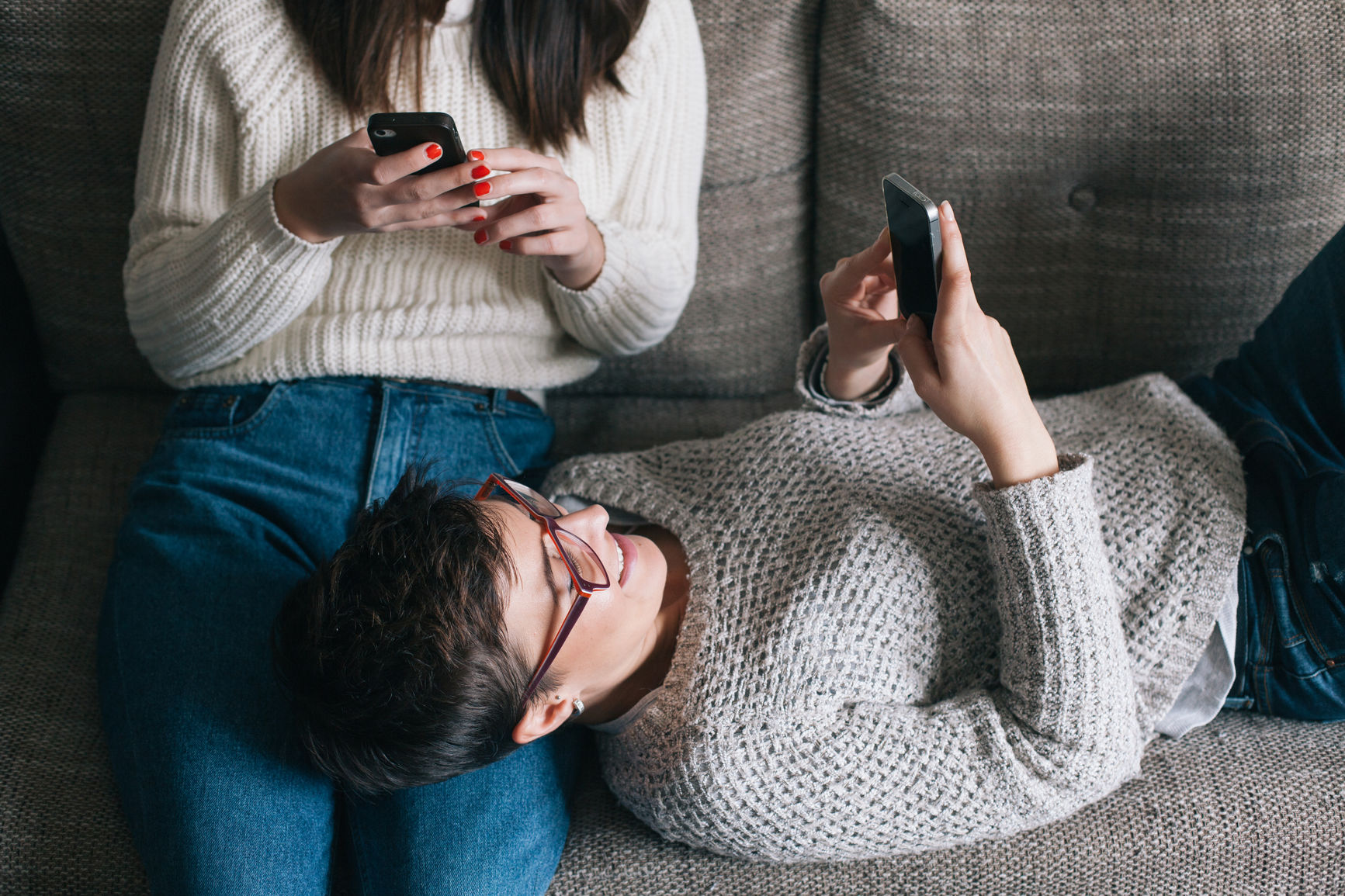-
Do you get irrationally anxious about losing your phone, running out of battery or being out of range? Maybe you suffer from nomophobia.
Cambridge Dictionary’s 2018 word of the year, ‘nomophobia’ is the fear of not having access to your mobile phone. Short for ‘no mobile phone phobia,’ the term has turned up in medical journals, and talk of classifying it as a psychological disorder has begun.
Symptoms can include excessive texting, constantly checking social media, trouble paying attention during everyday activities and/or high levels of anxiety at the thought of not being connected, missing out, or not having access to information.
But even if your mobile use has not reached obsessive levels, you might benefit from a little less time with it.
Experts say that while true smart phone addiction is rare, many of us may be experiencing negative side effects from being more engaged with our phones than our real life partners or other priorities.
Tips for disconnecting
If you think your phone or social media may be disrupting your productivity or relationships, or leaving you feeling less than stellar, your best bet may be to learn to manage it better, rather than lock yourself in a bunker and disconnect completely.
“Going completely cold turkey doesn’t appear as a particularly realistic option given the significant place technology has got in our everyday lives,” says Dr Daria Kuss of Nottingham Trent University, one of the most prolific researchers on the topic.
Fielding Graduate University professor of media psychology Pamela Rutledge agrees. In a recent article in Psychology Today, she argued that the same problems linked with social media—from wasting time to needing constant validation or comparing yourself to others— are bound to appear in other aspects of life—so it’s best to learn better coping strategies.
“Rather than avoid social media, it is more effective to identify behavioural problems and learn skills to address and manage them, such as goal setting, self-regulation, and self-control. Those skills are key life skills, transferable to other domains,” she writes.
Psychology researcher Dr Mark Griffiths, also of Nottingham Trent University, advocates for what he calls a 'digital detox' or a 'digital diet.' Again, the idea is to reduce your smart phone’s toll on your life without becoming a recluse.
How to cut back on phone use

-
Here are some steps the experts suggest:
Set boundaries
Limit how often you reach for your phone—for example don’t check more than once in an hour. Or set yourself a goal to gradually go for longer periods of time without checking your notifications.
Turn notifications off
You can reduce interruptions by turning your phone to silent, turning notifications off, deleting certain apps altogether, and/or using your phone’s Do Not Disturb function. (Check the settings or search online if you’re not sure how to do this on your particular device). You can also change the settings on various apps so that they don’t automatically refresh.
Don’t let your phone disrupt your zzzz’s
Switch your phone to flight mode or turn it off entirely when you go to bed—getting an old-fashioned alarm clock so you don’t have to rely on your phone will make this easier. Then you can charge it in another room entirely. That will also reduce the chance of you waking up at 2am for a wee only to spend the next hour debating with your cousin on Facebook.
Monitor yourself
By making yourself aware of exactly how much of your time you’re wasting, errr, spending on your phone, you may be more motivated to make a change, experts say. Sure, there’s a certain irony to using smart phone apps that track your online time to curb your smart phone use, but if it works, who cares? Mute, Space and Moment are just a few of the available apps.
Minimise temptations
Dr Griffiths also recommends getting an old school wrist watch for precisely that reason. How many times do you find yourself checking the time, and then getting swallowed into the social media/text message smart phone vortex as a result? A watch takes that ‘trigger’ out of the equation.
Delete apps from your phone
If you find yourself regularly distracted by certain apps, it may be worth deleting them from your phone. You can still use Facebook and other social media on your laptop, but the temptation will be less in your face.
Set other people’s expectations
Tell your friends or colleagues when you plan to be offline. They’ll be less likely to bug you and won’t be anxiously waiting your reply—and it’s less stressful for you if you’re not feeling obligated to check in ‘just in case’ that important email arrives. Out of office messages are also an option.
Remind yourself of the benefits
By increasing your productivity you’ll free up more time for the passions and people that matter most to you.
-
How is ‘phubbing’ hurting your relationships?
Here’s how to stop phubbing and be more mindful of your phone habits, to help improve face to face interactions with your family and friends.
-
Are the winter blues real?
Simple ways to boost your mood in winter.
-
Mental fitness explained
Just as you work to strengthen your body, your mental health deserves attention and exercise too.
-
Signs it's time to visit the dentist
Nobody wants to go. But there are good reasons to – promise.
-
The link between stress, anxiety and jaw pain
Physiotherapist Michael Chan explains how stress and anxiety can cause jaw pain, and how to help get some relief.
-
When you can't sleep next to your partner
You love everything about them – except their sleep habits.
Subscribe to receive the best from Live Better every week. Healthy recipes, exercise tips and activities, offers and promotions – everything to help you eat, move and feel better.
By clicking sign up I understand and agree to Medibank's privacy policy




.jpg)
